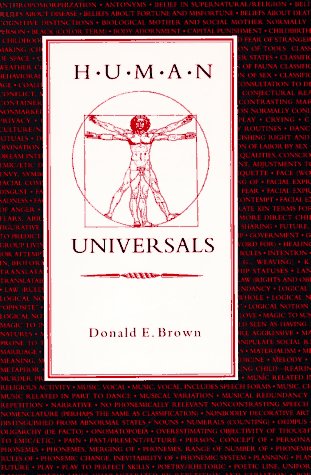So I'd think consumer behavior data / demographic data / etc. is a useful guide, but I'm not sure it's sufficient in and of itself.
All of that said, Alan Kay said something interesting in a set of lectures[1][2] he did a year or so ago. He brought up the idea of basing new product ideas on "Human Univerals", or universal aspects of human nature that really don't vary. A writer named Donald Brown wrote a book literally titled Human Univerals[3] which catalogs a number of these (a lot of them are pretty obvious though: food, shelter, sex, etc.). Kay suggested reading this book, pick one of the human univerals, and figure out a way to use technology to address that.
[1]: https://www.youtube.com/watch?v=id1WShzzMCQ
[2]: https://www.youtube.com/watch?v=1e8VZlPBx_0
[3]: https://www.amazon.com/Human-Universals-Donald-Brown/dp/0070...
http://www.amazon.com/Human-Universals-Donald-Brown/dp/00700...
The book is expensive, here's a list:


When I see weird situations like this, I usually assume it's a consequence of algorithmic pricing driven by bots, and that there's a bug, or the bots got caught up in some weird feedback loop or something, and the prices got set to some goofy value.
It could also be that demand for the book did temporarily spike for some reason (maybe somebody famous mentioned it in a popular Youtube video or something) and the pricing algorithms were reacting, but just overshot the mark.
I think something like that happened with Human Universals (https://www.amazon.com/Human-Universals-Donald-Brown/dp/0070...) a while back... it's not really all that notable a book in general, and there are plenty of used copies available. But Alan Kay recommended it in his Startup School videos and when I went to look for a copy, the prices were all totally outrageous. Like, on the order of several hundred dollars for even the paperback edition. But it eventually settled back down... but even now, the cheapest used paperback copy is around $65.00. Maybe it was a coincidence, but I suspect it was related.